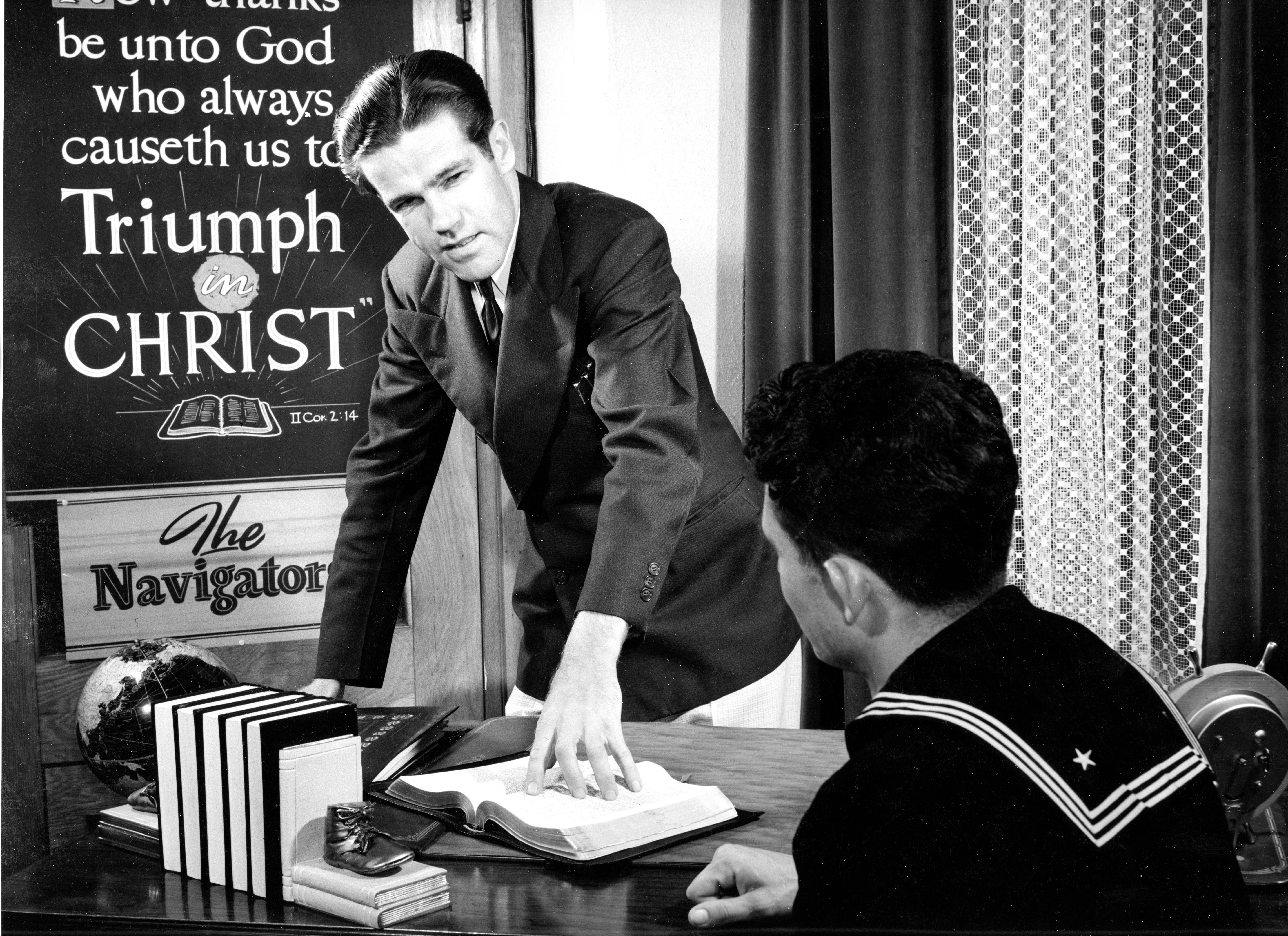By Donald McGilchrist
Dawson Trotman, the founder of The Navigators, had a clear vision, but an evolving one. It was still growing when he died. He used to describe it and proclaim it, rather than define it. Indeed, he usually maintained that it could not be defined in any short statement.
In the 1930s, he started by telling people about Christ. He would share his faith with anybody he met, with enthusiasm. This seemed to work well, until he led a hitchhiker to Christ but later found no lasting evidence of a new birth.
So, he developed the idea of follow-up to establish new believers in the faith.
By 1935, he was influencing many men, most of whom turned out not to be serious for God. At this time, he coined the name of The Navigators and adopted the motto “To Know Christ and to Make Him Known.”
Daws, as he is known, realized that he had to focus on and invest more deeply in a few receptive men in order to set them up spiritually for the long haul. So, he focused on a few “strong fellows.” The idea of man-to-man ministry was born.
Daws looked for those who would get down to business with God. He spoke of “rugged soldiers of the cross,” men who had “an eye single to His glory.” He was looking for “a band of men, whose hearts God had touched” (1 Samuel 10:26). He used to compare David’s thirty and three with Jesus’s twelve and three.
He prayed for men who were disciplined in their pursuit of God. Continuing discipline needs support, so Daws worked hard at developing ministry materials. He realized that methods and materials would extend his ministry far beyond his own personal reach.
In 1937, at Long Beach near Los Angeles, the Key Man System started to develop. Notebook materials were designed and high school students requested help.
In the years leading up to World War II, therefore, Daws moved:
- from quantity to quality
- from breadth to depth
- from experiments to methods
In 1961, his successor, Lorne Sanny, spoke of the significant strengths in Trotman’s life. One of the most important was claiming the promises of God, in prayer. Daws would sometimes declare, “I know that God has given me certain promises and I know He is going to fulfill them.”
Lorne saw it as a key factor that Daws was disappointed in the men he found in Southern California who would readily give their testimonies, but had no prayer lives. Nor could he find helpers for his boys’ work. Thus, he began to recruit these men and get them engaged in regular methods of memory, Bible study, check charts, etc. He focused on recruiting men of caliber.
That was The Navigators at the start of World War II.
